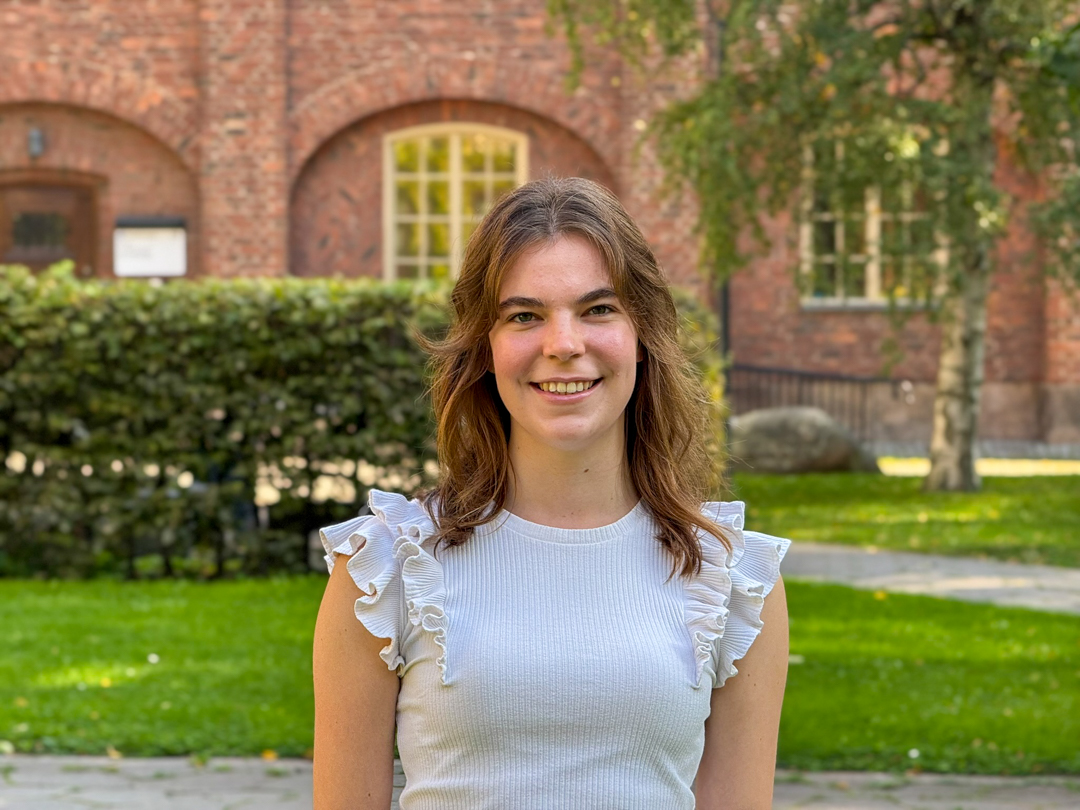Femke
Femke, 22, from the Netherlands, holds a bachelor’s degree in real estate management from Saxion University of Applied Sciences. In her free time, she enjoys swimming, dancing, practicing yoga, going to the gym, and spending time with friends and family. She is excited to explore Stockholm and looks forward to going on many hikes.

Why did you choose this master’s programme at KTH?
I am passionate about real estate and eager to deepen my knowledge and skills in the field. The programme’s diverse courses and KTH’s strong collaboration with industry leaders and commitment to sustainable development greatly appealed to me. I was also determined to study abroad to broaden my perspective and challenge myself, which would support both personal and professional growth. Stockholm felt like the ideal choice, a welcoming city surrounded by beautiful nature.
What are the best aspects of your programme?
The professors are deeply passionate about both teaching and their research. They connect theoretical concepts to real-world applications, share insights from their ongoing projects, and stay current with industry trends. This approach makes the courses engaging and helps us understand possible career paths.
Have you chosen a specialisation track within the programme?
I haven’t selected a specialisation track yet, as I’m currently in my first year of study. However, I’m interested in combining elective courses from both the ''Construction Project Management'' and ''Building and Real Estate Economics'' tracks.
What are some of your favourite courses so far?
I find procurement very interesting, so I particularly enjoyed the ''Project Communication'' course, where we learned how different procurement types fit various clients and projects. I am also looking forward to the ''Construction Management'' course later this year, which will explore procurement strategies in greater depth. ''Urban Economics & Cost Benefit Analysis'' also interests me, as understanding how land prices, zoning, and public investment decisions shape urban development complements my focus on procurement and strategic project planning.
How do studies at KTH differ from your previous studies?
My previous studies were at a university of applied sciences, where the emphasis was on practical learning through applied courses, internships, and collaborative group projects. While KTH’s programme also incorporates group projects, it places a stronger emphasis on quantitative research methods, which made some courses — especially "Quantitative Methods Applied to Real Estate and Construction Management'' — academically challenging, as I had no prior experience with them before starting the programme.
How is student life in Stockholm?
Student life in Stockholm is amazing! I arrived at the beginning of August and immediately joined the international reception organized by THS. This month-long welcome included a wide variety of activities: hikes, pub crawls, gasques, kayaking trips, baking nights, bouldering, parties, and more. It was incredibly fun and a great way to meet other master’s students from KTH. In addition, the S-chapter, the study association for this faculty, hosted its own reception. I took part in a Mamma Mia–themed dinner party, a cabin trip with lake swimming and sauna, a glass-painting night, and a karaoke evening. Even now that the receptions have ended, student life remains vibrant. The S-chapter organises weekly pub nights and THS organises theme parties almost every weekend. I joined the swimming association KTH Simförening and the KTH Outdoor Club to stay active and explore Stockholm’s nature, and there are many other sports and cultural associations to choose from at KTH.
